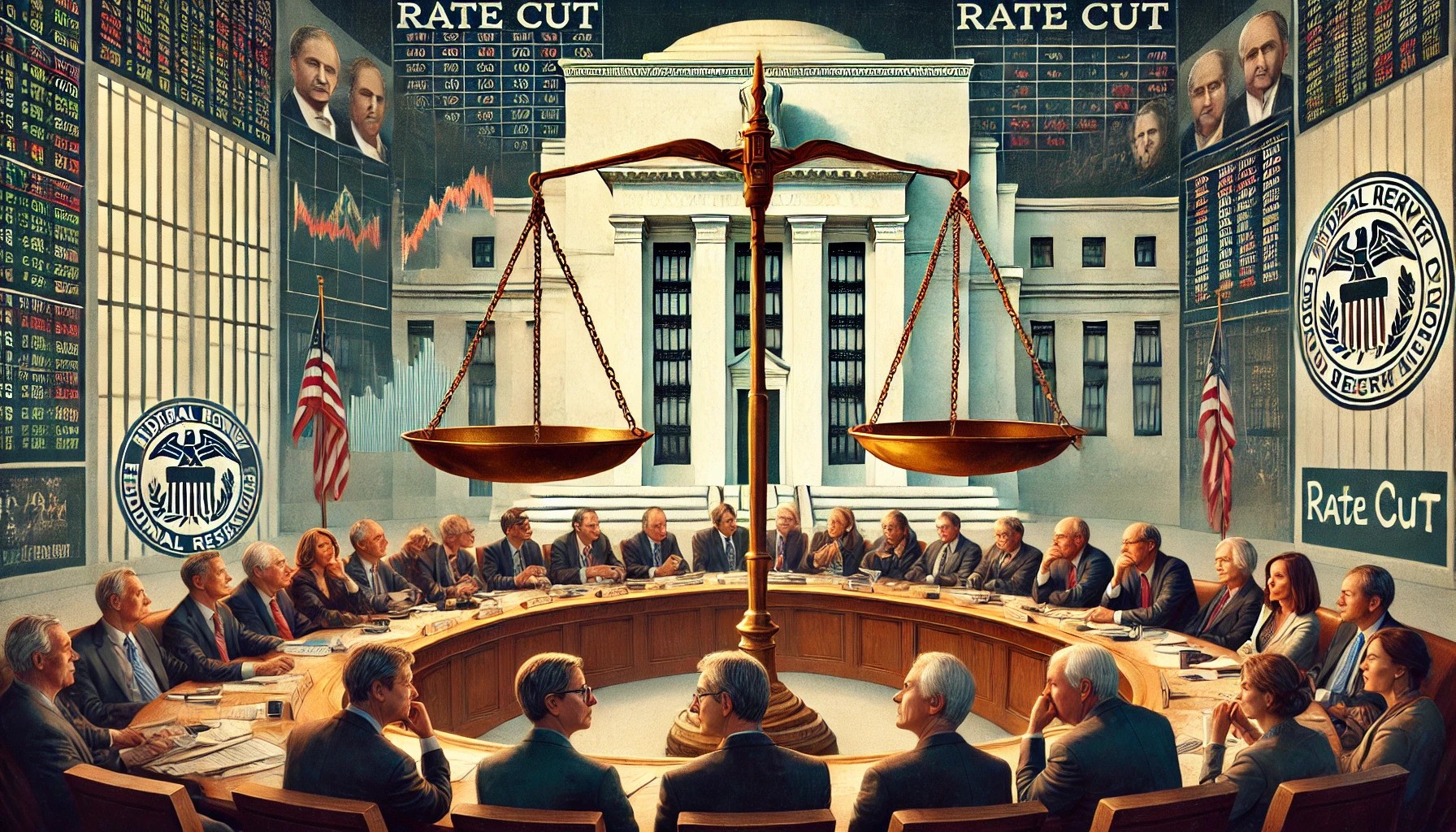(Money Metals News Service) In a recent episode of the Money Metals podcast, host Mike Maharrey engaged in a comprehensive discussion with Axel Merk, President and Chief Investment Officer of Merk Investments.
Known for his expertise in macroeconomic trends, Merk provided valuable insights into the current financial landscape, the Federal Reserve’s policies, and the prospects for precious metals like gold and silver.
(Interview Begins Around 6:50 Mark)
Who is Axel Merk?

Axel Merk is a prominent figure in the financial world, serving as the President and Chief Investment Officer of Merk Investments. With a strong academic background, holding a B.A. in Economics (magna cum laude) and a M.Sc. in Computer Science from Brown University, Merk has built a reputation as a sought-after speaker, contributor, and author.
He founded Merk Investments, which has grown into a $1 billion investment advisory firm offering services in domestic and international equities, fixed income, commodities, and currencies.
Merk’s deep understanding of macro trends and his analytical insights have made him a respected voice in the investment community.
The Federal Reserve’s Rate Cut Dilemma

Merk began by addressing the ongoing debate surrounding potential rate cuts by the Federal Reserve. He emphasized the significance of the Fed’s easing bias, noting that Fed Chair Jerome Powell is likely eager to cut rates but is constrained by economic data and market conditions.
According to Merk, the market currently anticipates a high probability of rate cuts in the coming months, particularly in September and October. This outlook is driven by mixed economic signals, including recent non-farm payroll reports and underlying economic weaknesses.
Financial Conditions and Inflation
Maharrey and Merk discussed the true tightness of financial conditions in the U.S. Merk highlighted the importance of the Chicago Fed’s Financial Conditions Index, which examines credit spreads rather than relying on more volatile measures like the VIX.
Despite some improvements, Merk pointed out that fiscal stimulus and the Fed’s support for small banks have cushioned the economy, complicating the assessment of true financial tightness. He warned that this micromanagement by the Fed could lead to inefficient capital allocation and increased political meddling, ultimately necessitating more printed money to achieve economic stability.
“The fiscal stimulus is a big one. The area that I don’t think gets enough attention is that the Fed has provided the Fed by giving a rescue line to the small banks. If that had been allowed to play out, we would’ve had a much worse economy,” said Merk.
Silver’s Complex Dynamics

Turning to the silver market, Merk acknowledged its recent brief surge but expressed caution about its future prospects. He noted the dual role of silver as both an industrial and precious metal, making it highly sensitive to economic fluctuations.
While there are strong fundamentals supporting silver, such as supply constraints and rising industrial demand, predicting its short-term performance remains challenging. Merk advised investors to approach silver with caution, given its inherent volatility and complex dynamics.
“The curse of silver is of course that it has this heavy industrial component that gold does not have… If you want to get really frustrated, do go invest in silver.”
Global Geopolitical and Economic Factors
Merk also addressed the broader global economic and geopolitical landscape. He emphasized the central role of the Federal Reserve in setting global benchmarks and the ripple effects of U.S. policies on the world economy.
“The Fed sets the global benchmark of the so-called risk-free assets… And while on the fringes there are some concerns about that, there isn’t really anything else to take its place at this stage.”
Discussing recent turmoil in Europe and conflicts like the Gaza situation, Merk highlighted the interconnectedness of global markets and the potential for increased geopolitical risks to drive inflation and economic instability. He pointed out that Europe’s struggles with energy policies and red tape are contributing to slower growth and more significant economic challenges.
Stock Market Concerns
The conversation shifted to the stock market, where Merk expressed concerns about its current state. He pointed out signs of overvaluation and irrational exuberance, reminiscent of the dot-com bubble.
While acknowledging that calling a market top is difficult, Merk advised caution, especially given the elevated levels of debt and consumer credit. He mentioned his own cautious approach, maintaining substantial cash holdings and avoiding new equity investments in recent months, while still holding significant positions in precious metals.
Merk expressed, “I do think that this stock market has many hallmarks of being at the… it’s certainly not at the bottom of a bull market. I think we can all agree on that. When CEOs become these hip cult icons, to me, those are not just yellow flags, those are starting to flash red.”
The Value of Gold and Macroeconomic Trends

Merk underscored the importance of gold as a hedge against economic uncertainty and a tool for portfolio diversification. He explained that gold’s value is not just about current economic conditions but also about the unknown future.
Merk cautioned that macroeconomic forecasts are often wrong and emphasized the need for risk management and scenario planning in investment strategies. He advised investors to remain vigilant and adaptable, recognizing that economic trends can take time to play out and that crises can arise unexpectedly.
“Gold is the thing you are glad you had looking backward, but why the heck do you have it going forward if it doesn’t even pay a dividend?… It’s one of these things that in the long run help balance out a portfolio.”
Key Questions and Answers:

These key questions and answers highlight Merk’s cautious yet strategic approach to navigating the current economic environment, emphasizing the importance of adaptability and vigilance in investment strategies.
Do you think the Fed is going to deliver a cut or two before the election or are they going to hold it off?
Merk believes the easing bias is significant, noting that Fed Chair Jerome Powell is inclined to cut rates if given an excuse. He mentioned that the market currently prices in a high probability of rate cuts in September, October, and December. However, he emphasized that these predictions are uncertain and dependent on economic data.
According to Axel Merk, “Mr. Powell would love to find an excuse to cut rates. And ever since that bias changed… I think the bias matters and we can talk about that. The market currently prices in a… 77% chance of a rate cut in September actually, and a full rate cut in October and then a second rate cut in December.”
Are we really tight, and has the Fed done enough to slay the inflation dragon?
Merk highlighted the Chicago Fed Financial Conditions Index, which he considers a reliable measure as it focuses on credit spreads. He pointed out that fiscal stimulus and the Fed’s support for small banks have mitigated economic tightening. However, he warned that the Fed’s micromanagement of the economy could lead to inefficient capital allocation and increased political interference.
When do you think that silver might finally “have its day”?
Merk acknowledged that silver had a brief surge but remains volatile due to its dual role as an industrial and precious metal. While there are strong fundamentals for silver, such as supply constraints and rising industrial demand, he advised caution, noting that predicting silver’s short-term performance is challenging.
What does some of the turmoil in Europe mean for the broader market as we move forward?
Merk emphasized the interconnectedness of global markets and the central role of the Federal Reserve. He discussed the potential inflationary pressures from geopolitical conflicts, such as those in Gaza and Ukraine, and the economic struggles in Europe. He pointed out that these factors contribute to a less stable and more inflationary world.
Is the stock market really a bubble, or is this a legitimate increase in value?
Merk expressed concerns about the stock market, noting signs of overvaluation and irrational exuberance. He advised caution, highlighting elevated debt levels and consumer credit. While he has not entirely exited equities, he mentioned maintaining substantial cash holdings and avoiding new equity investments in recent months.
If we get a significant correction in equities, how do you think that will affect the gold and silver markets?
Merk explained that precious metals tend to perform well during significant corrections in equities, especially in hard-landing scenarios where the Fed reacts more aggressively. He noted that investors often turn to gold and silver as diversifiers during market downturns.
Do you agree that macro trends take longer to play out than most people think?
Merk agreed, emphasizing that markets reflect future expectations rather than current conditions. He noted that macroeconomic forecasts are often wrong and that crisis events are unpredictable. He advised a focus on risk management and scenario planning rather than precise predictions.
What is something that you see bubbling under the surface that maybe is being missed by the mainstream?
Merk expressed concern about the gradual erosion of fiscal and monetary stability, driven by policymakers’ good intentions that often lead to worse outcomes. He warned about the long-term implications of these trends, including increased political instability and fiscal deficits, which he views as major threats to national security.
“What really concerns me is the gradual erosion of numerous things on the fiscal side, on the monetary side, it’s the road to hell that’s paved with good intentions. And then policymakers always reacting the wrong way, really amplifying things, making things worse rather than better,” stated Merk.
Conclusion

Axel Merk’s insights provide a nuanced perspective on the current economic environment, highlighting the complexities of central bank policies, the dynamics of precious metals, and the broader geopolitical and economic challenges. His cautious yet strategic approach to investing offers valuable guidance for navigating uncertain times.
For those interested in following Merk’s latest analyses, he can be found on X (Formerly Twitter) @axelmerk, and more information about Merk Investments is available on their website.
This comprehensive discussion serves as a reminder of the importance of staying informed and adaptable in an ever-changing economic landscape.

